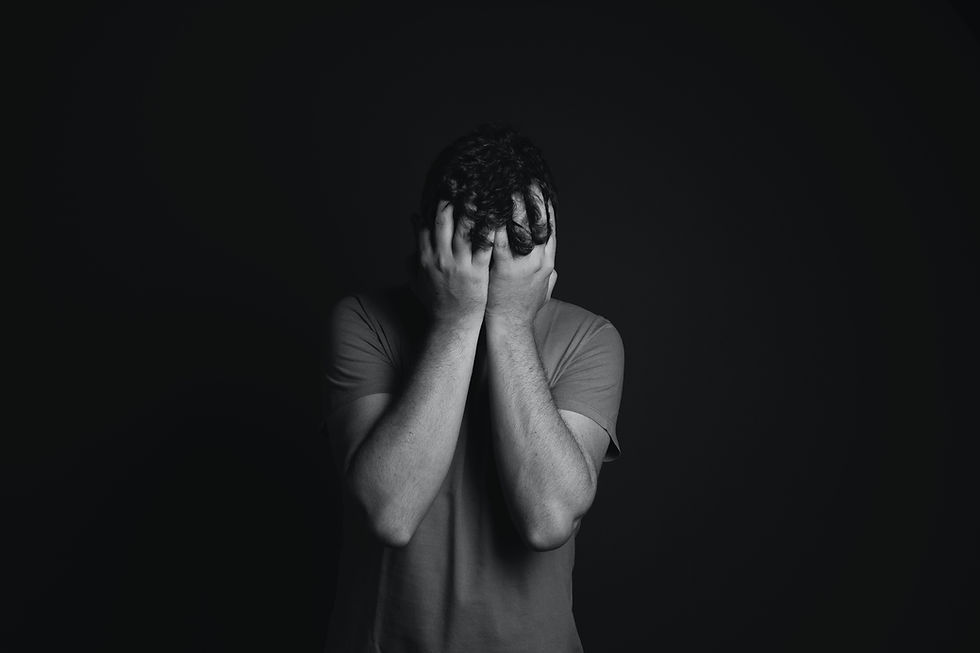How Trends Can Be Toxic to Our Mental Health
- Laura Richardson

- Oct 2, 2020
- 4 min read
Updated: Aug 20, 2021
Social media is the largest, most popular and global network of all time. With 3.81 billion active social media users around the world, almost every brand uses social media as their platform base.
First thing of a morning and last thing at night, a lot of people tend to scroll through social media apps. Looking at new trends or comparing ourselves to others is the norm. However, this could lead to users struggling with their mental health.
Mental health
Social media can play a huge part in affecting a person’s mental health. Instagram in particular can have a negative effect. Due to Instagram predominately being a picture app, this can result in users comparing themselves to others.
This is especially damaging because photos are edited and made to look completely different than in real life. Therefore, users have the admiration to look like the edited photos, when in reality the person does not look like that.
This is an example of unrealistic beauty standards. This is also discussed in the article Will Our Lives Ever Be Not Filtered?. This article discusses how social media shows a false reality and fake expectations.
Trends
Keeping up with trends can be toxic to our mental health. Teenagers and young adults especially, can feel influenced for the need to have the latest clothing and accessories. However, the majority of the time the latest trends can be a couple of hundred pounds per item.
More young children now use social media; therefore, this can influence them massively. For example, if their friends posted a picture on Instagram of new clothing they have, it would be likely they would want the same or similar.
Bullying could also be an aspect teenagers and young adults may experience by not having the latest trends. Some families could have financial pressures, therefore children may be unable to have designer clothing or the latest trends.
This could result in bullying which then affects mental health and children may feel unable to fit in with their friendship group. It could also go to the extremity of young people self-harming due to the bullying or not having the same clothing as others. There are however charities such as Mind, that are good support networks for those who are struggling with mental health.
Models and fashion shows
The latest designer collections have fashion shows that hit the New York, London, Milan, and Paris fashion weeks. The majority, if not all the models who participate in these fashion shows, engage in strict diets and exercise routines.
The desire to have the perfect figure is necessary for these models as they must look a certain way. This is due to society portraying what the ideal body should look like.
Victoria’s Secret model, Bridget Malcolm opened up about her own experiences with being underweight. She has also walked in other fashion shows such as Ralph Lauren and Stella McCartney. Steamed vegetables and protein shakes were her main diet for 2 years. She was so underweight that it would take her 10 minutes to climb a flight of stairs. She was unknowingly battling an eating disorder and chronic anxiety that soon lead to a ruined digestive system. This was because she thought, “I was doing what I had to do to succeed in the industry that I love.”
This again is an example of unrealistic beauty standards and pressures to maintain particular lifestyles, that are causing models and social media users to become an unhealthy weight.
Social media
Social media is the best platform for fashion brands to promote their products. The online retailer Boohoo partnered with an anti-bullying charity ‘Ditch the Label’. They created a cause-centric video called “The Insta-Lie”, which exposes how the false perceptions of living “our best lives” on social media lowers other people’s self-esteem and actually deepens online addictions.
Our reliance on social media can have a detrimental effect on our mental health. The average person from the UK checks their phone as much 28 times a day. While social media platforms can have their benefits, using them too frequently can make you feel increasingly unhappy and isolated in the long run.
Social media has been proven to cause unhappiness, however it can also lead to the development of mental health issues such as anxiety or depression when used too much or without caution.
What the fashion industry is doing
The fashion industry is recognising there is an issue. It is trying to implement changes by introducing plus size models.
In the 2019 Milan fashion week, a Gucci model, Ayesha Tan Jones, staged a mental health protest. The model walked along the catwalk with “mental health is not fashion” on their hand. The show included series of models being propelled along a conveyor belt catwalk, staring bleakly ahead, wearing a high fashion take on strait jackets.
The model included a video on Instagram and wrote a statement saying, “It is in bad taste for Gucci to use the imagery of straitjackets and outfits alluding to mental patients, while being rolled out on a conveyor belt as if a piece of factory meat.”
More people are now sharing their experiences with mental health, which is having a positive impact on others.
If you or anybody you know is struggling with mental health visit Mind to seek support:
Ditch the Label website: https://www.ditchthelabel.org



Comments